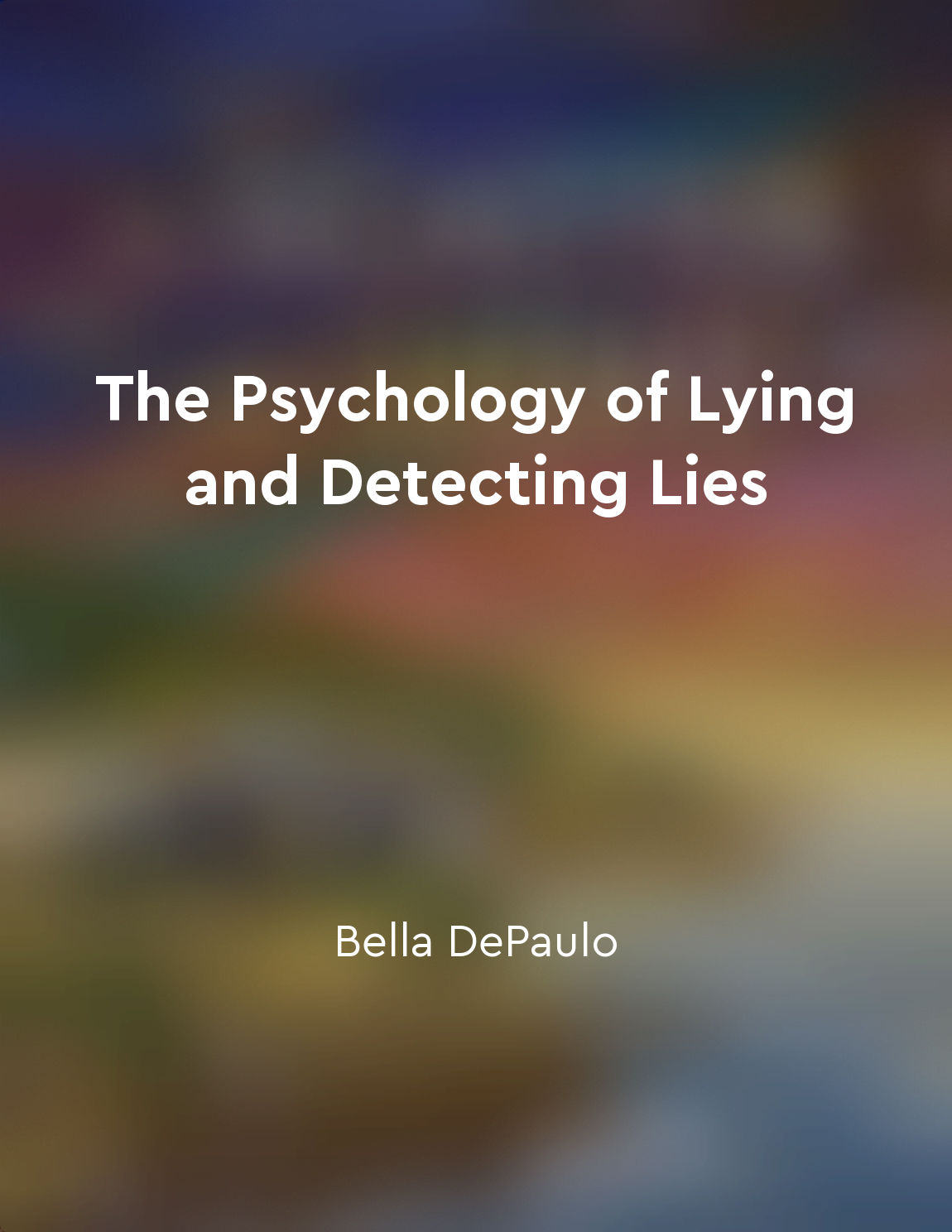Lying accompanied fear from "summary" of The Psychology of Lying and Detecting Lies by Bella DePaulo
Fear is a natural feeling when it comes to lying. It can be due to the potential consequences of being caught in a lie or the guilt associated with it. People often experience fear and anxiety when they have to tell a lie.- Fear can be overwhelming in driving one’s choice to lie than expressing themselves openly for how one truly feels. Such fear may come from past experiences, messages one has received over time or from pre conceived notions about oneself.
- Lying can become nasty habit as we get used to it, since it results in short-term immediate relief but deep inside builds up guilt and shame over time. It can take little by little chunks out of our self-esteem instead of curbing the fear.
- We usually resort to telling lies for protecting ourselves from potential harm or adversity caused otherwise from being honest in certain situations. Furthermore, lying can also prevent us from dealing with uncertainty, insecurity and other apprehensions we feel with respect to challenging situation.
- Pathological liars tend to make up stories only out of fear since they find it difficult to tell the truth even when the truth would not cause them any difficulty. They feel safer telling a lie then facing the potential consequences from telling the truth.
- Lie is an act of stating things that are not true which goes against the basic norm of truthfulness. People often lie because there is underlying fear associated with telling the truth; this could be a fear of being judged, hurt or rejected by others.
- Lying might appear intimidating at first since it is difficult to voice untruthful facts, however, when done carefully without getting caught, lying proves to be more comfortable than having to face the actual problem. We keep lying further until it spirals into bigger problem than originally existed.


